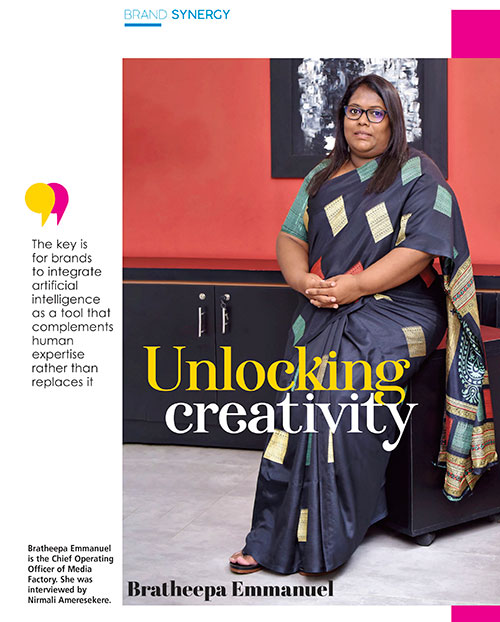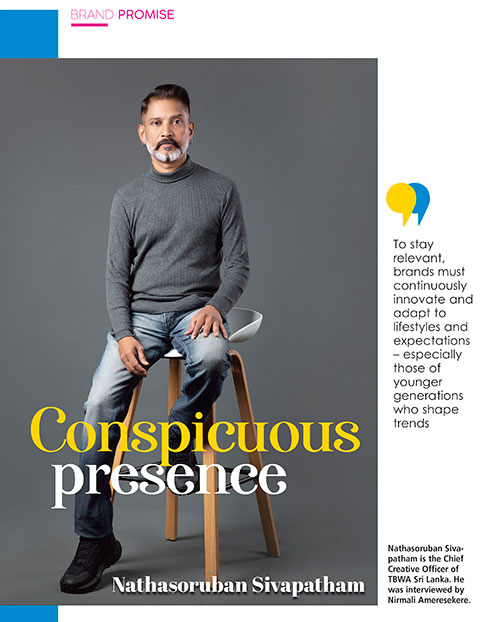BRAND RESONANCE
Evoking emotion
Mushthak Ahamed
Q: How would you define a strong brand – and what key elements contribute to brand building?
A: A strong brand is as good as its story. While brand purpose matters, its true strength lies in the story it tells and how deeply it resonates with people. A brand is more than a logo or tagline; a brand embodies its actions, values and how it makes people feel.
The key to brand building is a compelling and relatable story. It must connect on a macro level – aligning with cultural moments and global narratives – while also being meaningful at a micro level, speaking to diverse consumer segments in ways that matter to them.
Apple is a great example of a brand with a powerful story. Its story isn’t about selling technology; it’s about enabling creativity, challenging the status quo and empowering individuals. From the ‘think different’ campaign to its sleek minimalist product design, Apple has always positioned itself as more than merely a tech company.
It tells a story of innovation and individuality, creating an emotional connection that makes customers feel part of something bigger than the product they purchase. This is what turns customers into loyal brand advocates.
A good story makes a brand memorable and fosters long-term affinity. It creates an emotional connection that goes beyond the product itself, making people feel like they’re buying into an idea and a way of life.
Q: In today’s competitive landscape, what challenges do businesses face when developing a brand identity?
A: The main challenge brands face today is cutting through the noise with a story that resonates. With so much content out there, it’s easy to tune out unless something truly connects with us.
A brand can’t just talk; it has to evoke real emotion. The struggle is balancing broad appeal with a clear identity. The strongest brands don’t chase trends or force relevance – they stay true to their core, telling their story in a way that connects with the right audience.
When a brand’s story feels genuine, people naturally gravitate toward it.
Q: How important is brand purpose in today’s world? And how can businesses ensure authenticity in their branding?
A: Brand purpose is critical, yet it’s only as powerful as the story behind it. The real question isn’t merely what a brand stands for but how that story connects with people. If the story is weak, the purpose feels hollow.
Many brands claim a purpose but people can tell when it’s just words. Authenticity comes from consistency – i.e. when a brand’s story and actions align. If the story feels real, people buy into it; and if it doesn’t, they move on.
To make purpose real, brands need to show up where it matters.
Q: What are the most effective marketing channels for building brand presence today?
A: Everyone believes the best way to tell their story is through digital platforms. Brands invest heavily on online content, hoping to capture attention, though digital alone isn’t sufficient. A brand must be something people can experience.
This ties back to the power of a relatable story. A message may reach millions online but if it doesn’t resonate personally, it won’t stick. That is why the best brands combine digital, physical and experiential marketing, ensuring their story isn’t merely seen but lived too.
The strongest brand presence comes from a mix of story driven digital content, on ground activations and partnerships that place the brand where people are. When these elements work together, a brand stops being only another name online and becomes part of everyday life.
Ultimately, the best marketing strategy is one that ensures a brand is not merely seen but experienced; whether online, in stores or real world engagement.






